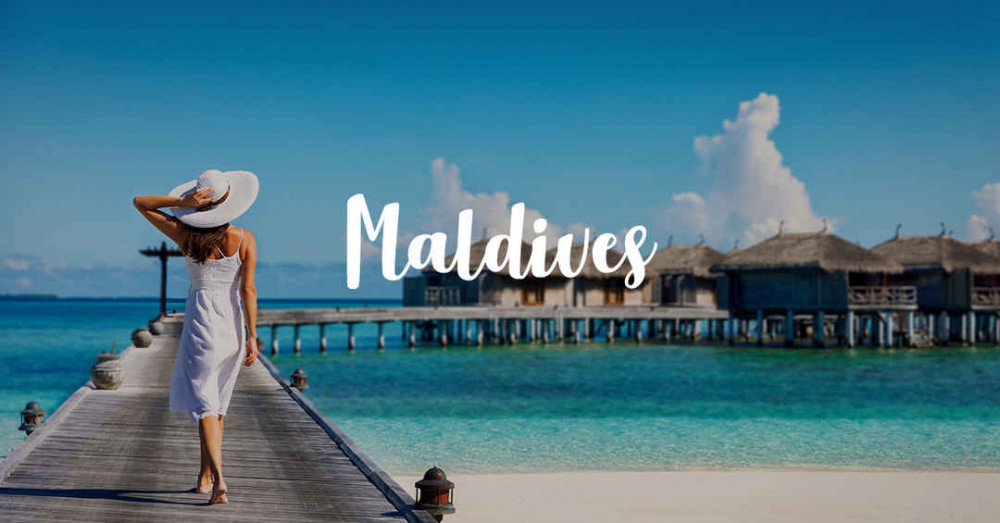ALL ABOUT MALDIVES!!!!!!!!! Tourism is the largest economic industry in the Maldives, as it plays an important role in earning foreign exchange revenues and generating employment in the tertiary sector of the country. The archipelago of the Maldives is the main source of attraction to many tourists visiting the island country. Overview of a typical tropical resort A tourist resort in the Maldives typically consists of an exclusive hotel on its own island, with its population entirely made up of tourists and work force, with no local people or houses. Those islands developed for tourism are typically 800 by 200 metres in size, and are composed of sand and coral to a maximum height of about 2 metres above the sea. In addition to its beach encircling the island, each island has its own "house reef" which serves as a coral garden and natural aquarium for scuba divers and snorkelers. The shallow water enclosed by the house reef also serves as a large natural swimming pool and protects swimmers from the ocean waves and strong tidal currents outside the house reef. The buildings on a typical resort include rooms and suites reserved for use by its guests, restaurants, coffee shops, shops, lounges, bars, discos and diving schools. A portion of the island also contains staff lodgings and support services such as catering, power generators, laundry, and a sewage plant. On-island shops offer a wide range of products, such as souvenirs and artifacts. Most resorts offer a wide variety of activities such as aerobics, volleyball and table tennis. Ecotourism There is some promotion of ecotourism in the Maldives, with resorts emphasizing recycling of heat that is wasted in producing electricity and stricter policies of waste disposal. Furthermore, the government aims to conserve the natural environment of the islands before they made into resorts by enforcing laws such as prohibition of catching turtles and reduction in the damage caused to the coral reefs. Nevertheless, the Maldives have frequently come under criticism for their lack of protection of the local shark populations, which have sharply decreased after being hunted extensively for decades. In some areas, sharks have entirely disappeared. Sharks are hunted primarily for their fins. Shark fins are exported from the Maldives to other countries in Asia, where they are regarded as a delicacy. The fins are amputated from the live animals, which are then thrown back alive into the sea. Although this practice is prohibited by law in the Maldives, these laws are not respected or enforced by the local authorities. In 2001, a local environmental organization called Seamarc/Marine savers (known onsite as Reefscapers), set up an ambitious program of reimplantation of coral in damaged areas, on the basis of resort sponsorship. Many thousands of tourist-sponsored "coral frames" have been successfully transplanted in many resort reefs like Kuda Huraa and Landaa Giraavaru, and are under close survey by marine scientists; they are a refuge for thousands of tropical species, and help to preserve and recover these fragile ecosystems. "There are big challenges that come with the advantages of the islands' tourist assets, however," said Richard Damania, World Bank Lead Environmental Economist. "The country's coral reefs, which protect it from storm surges and serve as the main attraction for the tourism-driven economy, are in danger of being damaged or destroyed by poorly handled waste disposal methods." Natural environment The Maldives are known for their natural environment including the blue ocean, white beaches, and clean air.[citation needed] The climate of the Maldives is ideal[citation needed] for visitors to get engaged in water sports such as swimming, fishing, scuba diving, snorkeling, water-skiing. windsurfing and kite boarding. The natural environment of the Maldives attracts tourists all over the world and every year.[citation needed] Its tourism industry is today the Maldives' largest revenue generator. Due to their extraordinary underwater scenery and clean water, the Maldives is ranked among the best recreational diving destinations of the world, with over 60 local dive sites across the islands. It was also reported to be the world's most desired honeymoon destination, according to a global survey by Agoda.com.






















